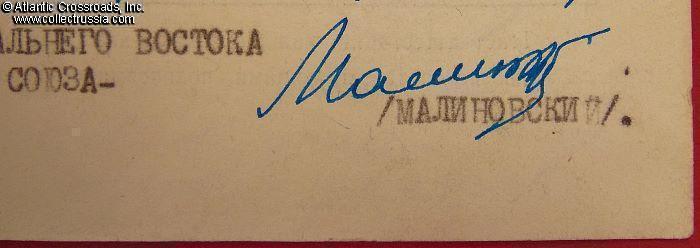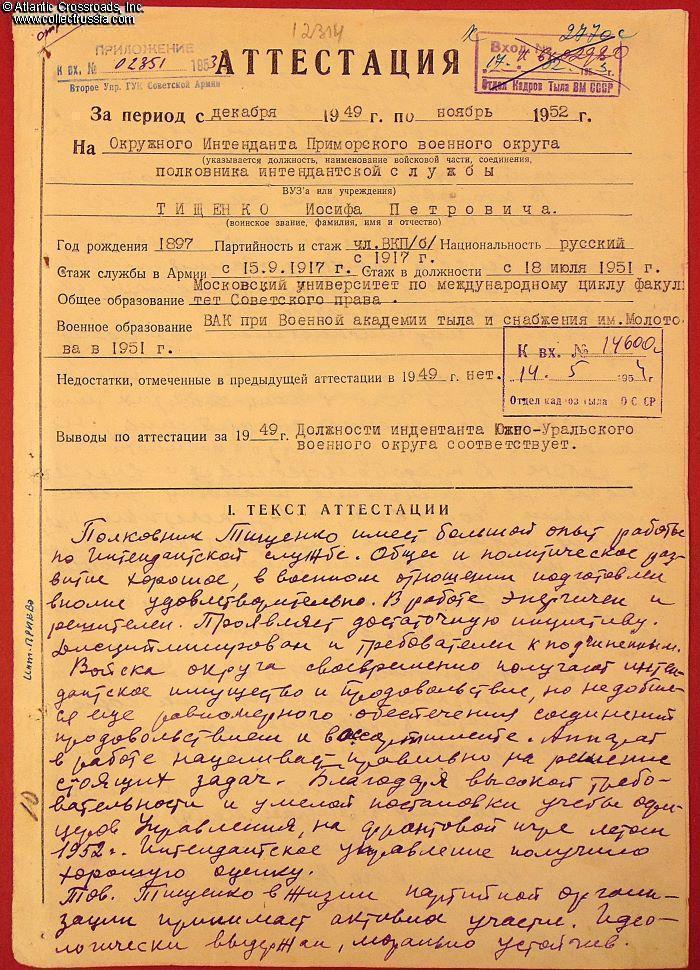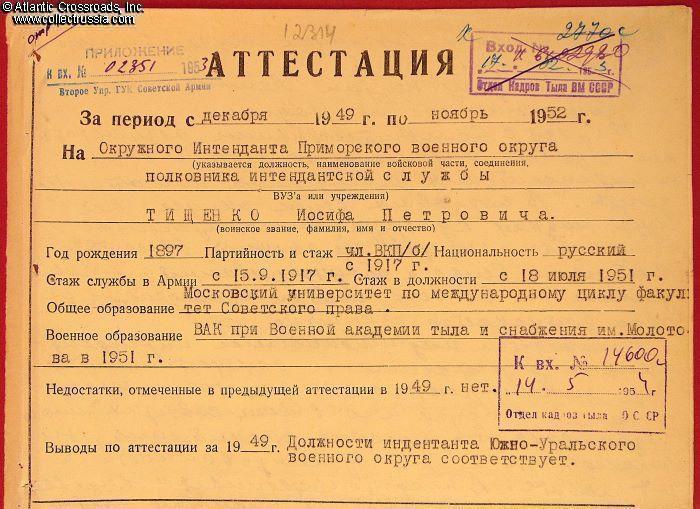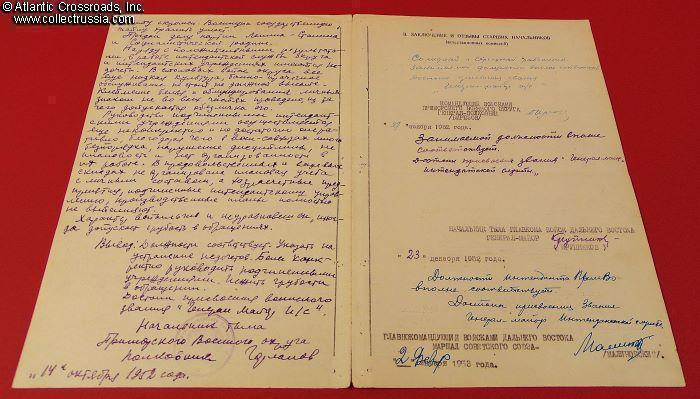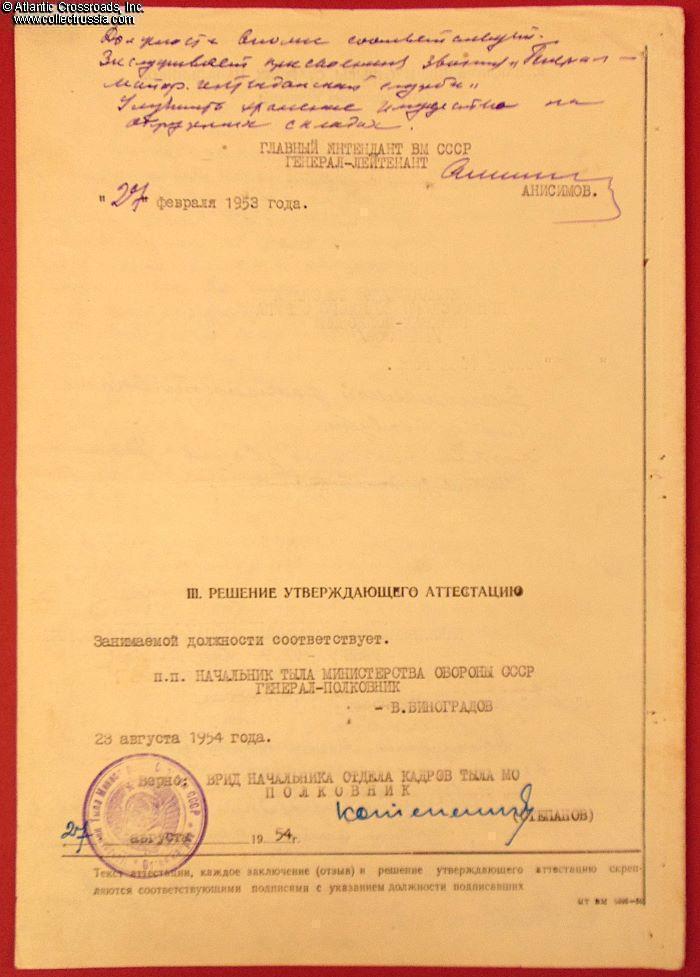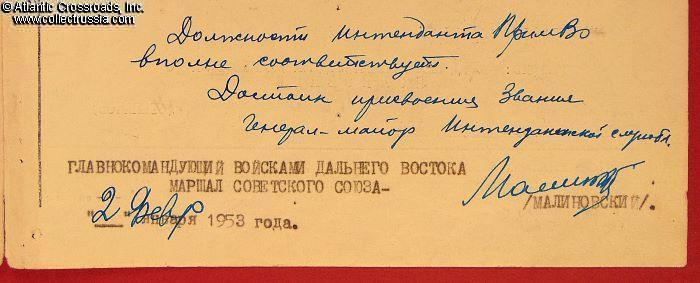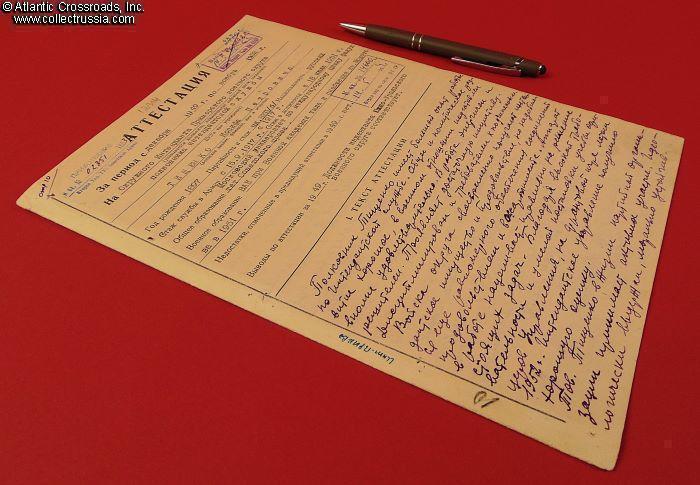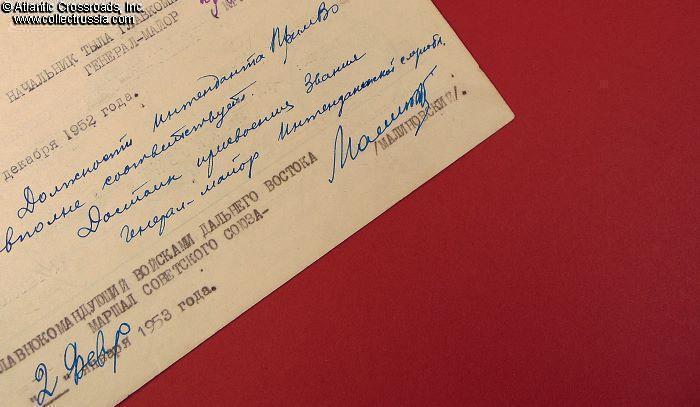
Rodion Malinovsky, handwritten & typed document signed, 1952-54.
The document is a standard 8" x 11 ½" 4-page form for service evaluation and promotional recommendation of Col. Iosif Tishchenko, Quartermaster, Primorsky Military District, for the rank of Major General. Col. Tishchenko is described as energetic, politically sound and active, modest in everyday life, irascible and often rude with his underlings. The units under his command are described as disorganized, underperforming and sloppy in fulfilling some of their tasks. This assessment leads to the conclusion that Tishchenko is quite adequate for his post and deserves to be promoted to the r
The document is a standard 8" x 11 ½" 4-page form for service evaluation and promotional recommendation of Col. Iosif Tishchenko, Quartermaster, Primorsky Military District, for the rank of Major General. Col. Tishchenko is described as energetic, politically sound and active, modest in everyday life, irascible and often rude with his underlings. The units under his command are described as disorganized, underperforming and sloppy in fulfilling some of their tasks. This assessment leads to the conclusion that Tishchenko is quite adequate for his post and deserves to be promoted to the rank of Major General. Commander-in-Chief of the Far East Armed Forces of the USSR Marshal of the Soviet Union Malinovsky signed his agreement with the conclusion on the bottom of page 3, in blue ink, dated 2 February 1953.
Rodion Malinovsky (Родион Яковлевич Малиновский, 1898 - 1967) began his military career very early. The Russian Imperial Army, the Expeditionary Corps of the Russian Army in France, and finally, the Red Army. From an undocumented runaway who padded his age to join the Army during WW1, he rose to the rank of Marshal of the Soviet Union in 1944 and the post of Minister of Defense of the USSR from 1957 until his death in 1967. During WW2 he distinguished himself during the Battle of Stalingrad as Commander of the 2nd Guards Army. Later in the war, he commanded the Southwestern, 3rd Ukrainian, and 2nd Ukrainian Fronts. After the German surrender, Malinovsky was transferred to the Far East where he crushed the Japanese Kwantung Army in Manchuria. After Stalin's death, Nikita Khrushchev appointed Malinovsky Commander-in-Chief of the Soviet Ground Forces. In 1957, Malinovsky replaced the ousted Georgy Zhukov as Minister of Defense, a position he served until his death. During the Cuban Missile Crisis, Malinovsky advocated for conventional forces, counterbalancing Khrushchev's missile-based approach regarding the Soviet military doctrine. He died of pancreatic cancer on 31 March 1967 and was cremated and buried in the Kremlin Wall Necropolis, an honor very few Soviet leaders were found worthy of.
Please note that the pen in our photo is for size reference.
$190.00 Add to cart

